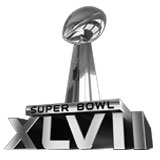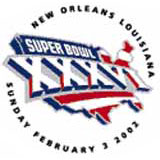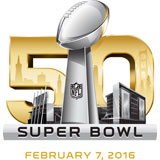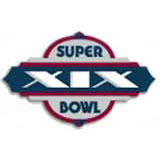
Arena League Football History
Welcome to the Arena Football League information page.
The Arena Football League (AFL) sometimes referred to by fans as the Arena League was founded in 1987 as an American football indoor league. The AFL's attendance has increased dramatically over the last few years, rising to over 12,400 people per game in 2005. The AFL also maintains a minor league called af2.
Formation:
"Playtest Game"
Eventual Arena Football League (AFL) founder Jim Foster, a former National Football League and United States Football League executive, originally had a contract in hand in 1983 to play an exhibition game on the NBC television network, two decades before the first regular season games appeared on that network. He abandoned the plan, though, when the USFL was formed and did not return to his newly created sport until 1986. The first AFL game was played, called a "playtest game", in Rockford, Illinois at the MetroCentre between the Rockford Metros and the Chicago Politicians. These teams were the first ever arena football teams.
The AFL Begins
The AFL was founded in 1987 as an American football indoor league. The league's inaugural season featured four teams: the Chicago Bruisers, Denver Dynamite, Pittsburgh Gladiators, and Washington Commandos. The teams played a six-game season, culminating in Arena Bowl I, where Denver defeated Pittsburgh in Pittsburgh.
In 1990, Foster was awarded a patent for arena football and the equipment unique to it--the only known instance of a game being patented anywhere in the world. This means that other indoor football leagues must play under significantly different rules.
Early Years
From its inception, the AFL operated in a state of semi-obscurity; many Americans had heard the term "arena football" and would ridicule it for being played indoors, but knew little to nothing about the league itself.
From the 1987 season until the late 1990s, the most exposure the league would receive was on ESPN, which would air tape-delayed games, often well after midnight. The league would receive its first taste of wide exposure in 1998, when Arena Bowl XII was televised nationally as part of ABC's Wide World of Sports.
One of the league's early success stories was the Detroit Drive. A primary team for some of the AFL's most highly regarded players, including George LaFrance, Gary Mullen, and Alvin Rettig, as well as being a second career chance for quarterback Art Schlichter, the Drive regularly played before sold out crowds at Joe Louis Arena, and went to the ArenaBowl every year of their existence (1988-1993). However, the AFL's first dynasty came to an end when their owner, Mike Ilitch (who also owned Little Caesar's Pizza) bought the Detroit Tigers, and sold the team.
Although the Drive left the league, the AFL still has a number of teams today which it considers "dynasties", including the Tampa Bay Storm (the only team who has existed in some form for all twenty seasons), the Orlando Predators, and the Arizona Rattlers. The Albany/Indiana Firebirds, though they only won one championship, could also be considered a dynasty, based on the fact that they achieved the rare feat of remaining in one city for ten years.
While the aforementioned teams have enjoyed success, many teams in the history of the league have enjoyed little to no success. There are also a number of franchises which existed in the form of a number of unrelated teams under numerous management groups until they folded (an example is the New York CityHawks whose owners transferred the team from New York to Hartford to become the New England Seawolves after two seasons, then after another two seasons were sold and became the Toronto Phantoms, who lasted another two seasons until folding). There are a number of reasons why these teams failed, including lack of financial support from owners, lack of media exposure, to the city's plain disinterest in the team. Today, this isn't seen as much of a problem, as team owners typically own other sports franchises as well, receive adequate media coverage from their home cities, and most teams have a sizeable fan base.
The Next Millennium
The year 2000 brought a heightened interest in the AFL. Then-St. Louis Rams quarterback Kurt Warner, who was MVP of Super Bowl XXXIV, was first noticed because he played quarterback for the AFL's Iowa Barnstormers. While many sports commentators and fans continued to ridicule the league, Warner's story gave the league positive exposure, and it brought the league a new television deal with TNN, who unlike ESPN, would televise regular season games live. While it was not financially lucrative, it helped set the stage for what the league would become in the new millenium. Also, the year 2000 brought a spin-off league, the af2, intended to be a developmental league.
Growth of the League
Television - Beginning with the 2003 season, the AFL made a deal with NBC to televise league games, which was renewed for another two years in 2005. In conjunction with this, the league moved the beginning of the season from May to February (the week after the NFL's Super Bowl) and scheduled most of its games on Sunday instead of Friday or Saturday as it had in the past. In 2006, due to the XX Winter Olympic Games, the Stanley Cup playoffs and the Daytona 500, NBC scaled back from weekly coverage to scattered coverage during the regular season, but is committed to a full playoff schedule ending with the 20th ArenaBowl. On June 30, 2006 the AFL and NBC could not reach a contract extension and is actively seeking a new national broadcast partner.
The AFL also has a regional-cable deal with FSN, where FSN regional affiliates in AFL markets carry local team games. In February 2006, the AFL added a national cable deal with OLN (now Versus) for eleven regular-season games and one playoff game.
Expanding the season
The practice of playing one or two preseason exhibition games by each team prior to the start of the regular season was discontinued when the NBC contract was initiated, and the regular season was extended from 14 games, the length that it had been since 1996, to 16.
Literature
In 2001, Jeff Foley published War on the Floor: an average guy plays in the Arena Football League and lives to write about it. The book details a journalist's two preseasons (1999 and 2000) as an offensive specialist/writer with the now-defunct Albany Firebirds. The 5-foot-6 (170 cm), self-described "unathletic writer" played in three preseason games and had one catch for -2 yards.
Teams
American Conference
South Division
- Jacksonville Sharks Jacksonville, Florida Jacksonville Veterans Memorial Arena
- New Orleans VooDoo New Orleans, Louisiana Smoothie King Center
- Orlando Predators Orlando, Florida CFE Arena
- Tampa Bay Storm Tampa, Florida Tampa Bay Times Forum
East Division
- Cleveland Gladiators Cleveland, Ohio Quicken Loans Arena
- Philadelphia Soul Philadelphia, Pennsylvania Wells Fargo Center
- Pittsburgh Power Pittsburgh, Pennsylvania Consol Energy Center
National Conference
Pacific Division
- Portland Thunder Portland, Oregon Moda Center
- San Jose SaberCats San Jose, California SAP Center at San Jose
- Spokane Shock Spokane, Washington Spokane Veterans Memorial Arena
West Division
- Arizona Rattlers Phoenix, Arizona US Airways Center
- Los Angeles Kiss Anaheim, California Honda Center
- San Antonio Talons San Antonio, Texas Alamodome
** Note ** Expansion Las Vegas Outlaws Las Vegas, Nevada TBA
2006 events
In 2006, the season began on January 27, during the week between the NFL's Conference Championship games and the Super Bowl.
The league conducted an expansion draft in September of 2005 in order to stock the Utah Blaze. Because of Hurricane Katrina, the New Orleans VooDoo announced that they would suspend operations for 2006. Players under contract to the VooDoo were transferred to the Kansas City Brigade franchise. The 2007 season will see the return of arena football to New Orleans.
On June 11, the Chicago Rush defeated the Orlando Predators to win ArenaBowl XX in Las Vegas. It was the second straight year the game was played there. All previous title games were on the home field of the team with the better record.
EA Sports has released a video game based on the AFL, titled Arena Football, on February 7, 2006, for PlayStation 2 and Xbox. Another video game created about Arena football was Kurt Warner's Arena Football Unleashed.
NBC and the Arena Football League officially severed ties on June 30, 2006, having failed to reach a new broadcast deal. The AFL plans to seek a new broadcast partner.
2007 plans
The AFL was scheduled to have 19 teams in its 2007 season. As mentioned above, the VooDoo will return to action after a one-year absence, as repairs have been completed to the New Orleans Arena.
The league's 2007 schedule was announced on November 29, 2006, but no television contract was announced at that time. In late November, the Sports Business Journal reported that negotiations were ongoing with ESPN and the NFL Network. ESPN could place a game in the opening week of the season and the ArenaBowl on ABC.
2009 Season Cancelled
Although the Arenafootball2 league played its tenth season in 2009, a conference call in December 2008 resulted in enough votes from owners and cooperation from the AFLPA for the AFL to suspend the entire 2009 season in order to create "a long-term plan to improve its economic model"
In doing so, the AFL became the second sports league to cancel an entire season, after the National Hockey League cancelled the 2004-05 season because of a lockout. Efforts to reformat the league's business model were placed under the leadership of Columbus Destroyers owner Jim Renacci and interim commissioner Policy
On July 20, 2009, Sports Business Journal reported that the AFL owed approximately $14 million to its creditors and were considering filing for Chapter 11 bankruptcy protection
2010 AFL Reboot
On February 17, 2010, AF1 announced it would use the "Arena Football League" name. The league announced plans for the upcoming season and details of its contract with NFL Network to broadcast AFL games in 2010. AF1 teams were given the option of restoring historical names to their teams. In addition to the historical teams, the league added two new expansion franchises, the Dallas Vigilantes and the Jacksonville Sharks.
2011 New Teams
For the 2011 season, the Philadelphia Soul, Kansas City Brigade, San Jose SaberCats, New Orleans VooDoo, and the Georgia Force returned to the AFL after having last played in 2008. The league added an expansion team, the Pittsburgh Power. Former Pittsburgh Steelers wide receiver Lynn Swann is one of the team's owners. It was the first time the AFL returned to Pittsburgh since the Pittsburgh Gladiators were an original franchise in 1987 before becoming the Tampa Bay Storm. The Brigade changed its name to the Command, becoming the Kansas City Command
Even though they were returning teams, the Bossier-Shreveport Battle Wings moved to New Orleans as the Voodoo, the identity formerly owned by New Orleans Saints owner Tom Benson. The Alabama Vipers moved to Duluth, Georgia to become the new Georgia Force (the earlier franchise of that name being a continuation of the original Nashville Kats franchise)
On October 25, 2010 the Oklahoma City Yard Dawgz did not return. The Milwaukee Iron also changed names to the Milwaukee Mustangs, the name of Milwaukee's original AFL team that had existed from 1994 to 2001.
2013 More Teams Announced
In 2013, the league expanded with the addition of two new franchises to play in 2014, the Los Angeles Kiss (owned by Gene Simmons and Paul Stanley of the legendary rock band KISS) and the Portland Thunder.
2014 More Good News
In 2014, the league announced the granting of a new franchise to former Motley Crue frontman Vince Neil, previously part-owner of the Jacksonville Sharks. That franchise is set to play in Las Vegas in 2015. And after 20 years as a familiar name to the league, an AFL mainstay, the Iowa Barnstormers, departed the league to join the Indoor Football League.
Fan Zone - Show Your NFL Pride!
2016-08-29 15:45:03
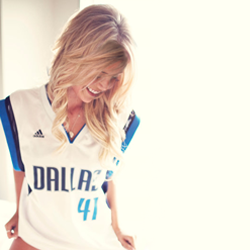
Jillian Samuels
Dallas Cowboys fan - Dallas2016-08-29 15:45:06
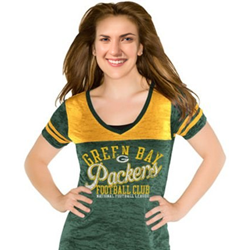
Rosa Agostinelli
Green Bay Packers fan - Providence2016-08-29 15:45:00
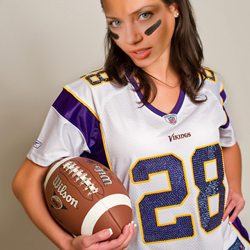
Hope De Los Santos
San Diego Chargers fan - Phoenix ArizonaSuper Bowl History
| Sunday | 1:00 pm | Ravens | @ | Bengals |
| 1:00 pm | Texans | @ | Titans | |
| 1:00 pm | Panthers | @ | Buccaneers | |
| 1:00 pm | Browns | @ | Steelers | |
| 1:00 pm | Cowboys | @ | Eagles | |
| 1:00 pm | Bills | @ | Jets | |
| 1:00 pm | Bears | @ | Vikings | |
| 1:00 pm | Jaguars | @ | Colts | |
| 1:00 pm | Patriots | @ | Dolphins | |
| 4:25 pm | Chiefs | @ | Chargers | |
| 4:25 pm | Cardinals | @ | Rams | |
| 4:25 pm | Raiders | @ | Broncos | |
| 4:25 pm | Giants | @ | Redskins | |
| 4:25 pm | Seahawks | @ | 49ers | |
| 4:25 pm | Saints | @ | Falcons | |
| 8:30 pm | Packers | @ | Lions | |
 | ||||
| NFL Season Schedule >>> | ||||
| No weeks currently open. |
| Visitor | vs | Home | Favorite | Spread |
| Ravens | @ | Bengals | Bengals | 2.5 |
| Texans | @ | Titans | Titans | 3 |
| Panthers | @ | Buccaneers | Buccaneers | 6 |
| Browns | @ | Steelers | Steelers | 7 |
| Cowboys | @ | Eagles | Eagles | 6 |
| Bills | @ | Jets | Bills | 6 |
| Bears | @ | Vikings | Vikings | 5.5 |
| Jaguars | @ | Colts | Colts | 4.5 |
| Patriots | @ | Dolphins | Patriots | 9.5 |
| Chiefs | @ | Chargers | Chiefs | 4.5 |
| Cardinals | @ | Rams | Cardinals | 6 |
| Raiders | @ | Broncos | Broncos | 2.5 |
| Giants | @ | Redskins | Redskins | 8 |
| Seahawks | @ | 49ers | Seahawks | 10 |
| Saints | @ | Falcons | Falcons | 7 |
| Packers | @ | Lions | Packers | 3 |
| View NFL Spread Information >>> | ||||

